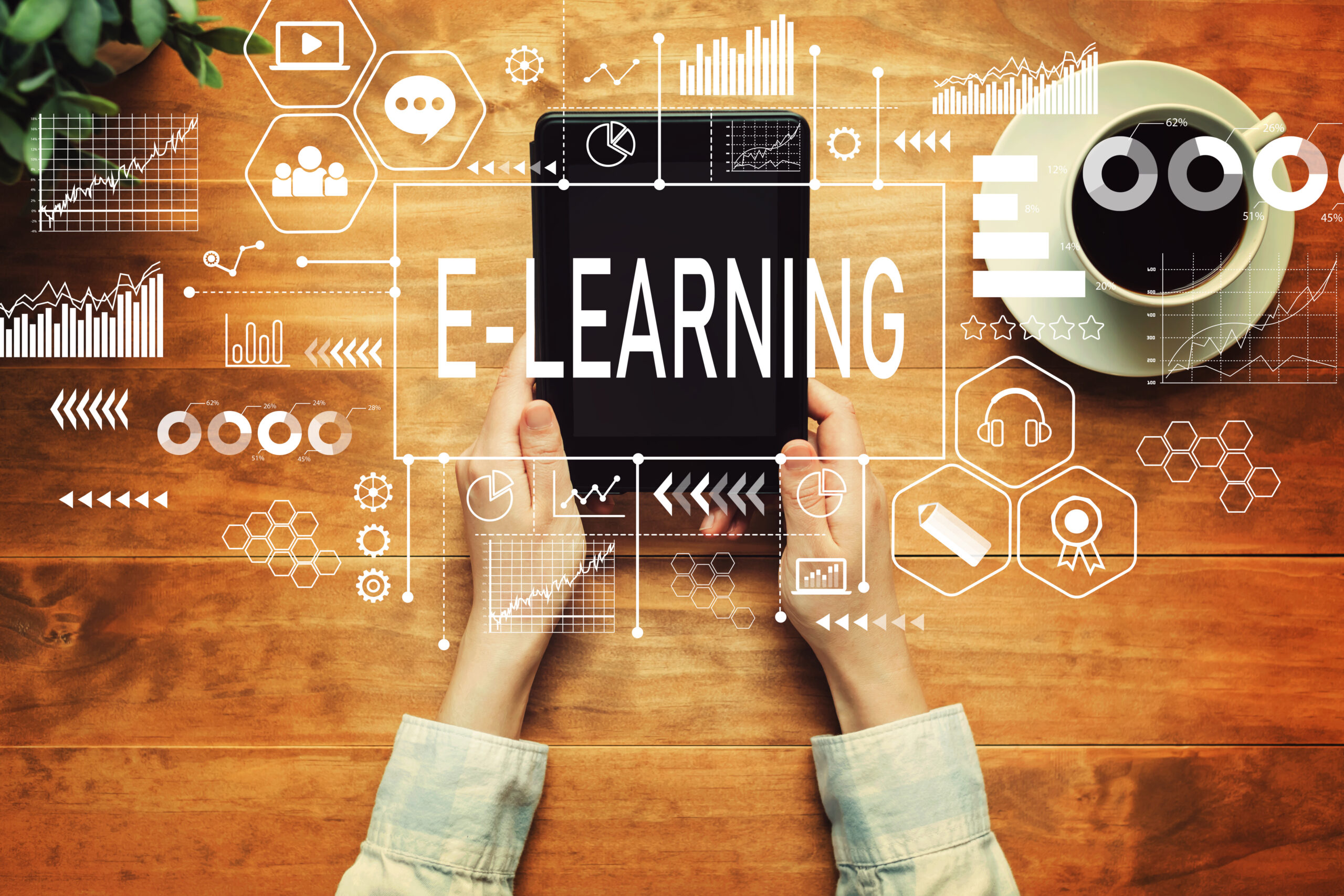Cultivate your human skills and embrace the four Cs to thrive in an AI-driven world, writes Laura Thomson-Staveley
Back in 2016, I had a moment where I realised how significant artificial intelligence (AI) could become in our daily lives. I was listening to a neuroscientist talk from the Defense Advanced Research Projects Agency (Darpa) in the US which has a $3bn a year annual budget for research activities which invariably focuses on AI, and it struck me that we were on the cusp of something big. It’s clear that now, more than ever, the relevance of our discussions on AI has skyrocketed.
Human connection is what makes work (and life) successful rather than stressful, and that’s not something we should let robots or AI take away from us
However, we didn’t anticipate a pandemic that would force us to adapt so drastically. The world of work became vulnerable, and people were (and many still are) exhausted. Innovations are challenging when you’re barely coping with your nine-to-five. Many people are juggling caring responsibilities along with their jobs. This fatigue was something we hadn’t anticipated, and it made the integration of AI into the workforce even more complex.
As humans, the last thing we need is more stress and pessimism. Worrying less opens our minds to opportunities, a key theme which resonates with many of my coaching clients. Especially in the advent of AI, it’s important to consider how to maximise the human touch in our work and daily interactions.
Tapping into our humanness
First, we need to notice and identify the moments that bring humanness to our work. Whether it’s in our jobs or leisure activities, human interactions are a constant part of life. Second, we need the confidence and self-belief to break away from the norm, even if everyone else is glued to their screens. And third, we must remember to enjoy ourselves; humans do things for pleasure, and that’s an essential part of our nature.
From our recent coaching workshops, we’ve found that people really enjoy activities that remind them of the power of being together. It’s important to remember that we are human beings, not human doings. We need to remind ourselves of the benefits of human interactions, even if they take a bit more time.
Mundane or boring tasks should be left to robots. However, the importance of emotional intelligence remains. While machines can learn, there’s an element of being an emotionally intelligent human that a robot can’t replicate. The impact we have on individuals through empathy and connection far outweighs anything a robot could achieve.
Noticing someone who’s not feeling themselves or reacting to something in a room requires human observation and sensitivity. You can’t wait for a computer to make that call; it’s about reacting in the moment and showing empathy, which makes a huge difference. This emotional intelligence can make or break relationships and requires immediate, empathetic responses.
It’s crucial to identify what makes our roles human and personal because tasks that are just about transferring information will likely be automated. For our sense of optimism and empowerment, we need to find our edge and the value we add to our work. People generally enjoy the human aspects of their jobs the most.
Human edge skills
When we talk about the three human edge skills, we’re talking about emotional intelligence, personal resilience, and mental presence.
- Emotional intelligence involves self-awareness, self-management, social awareness, and relationship management. It’s about being mature with yourself and others, even when others aren’t.
- Personal resilience is about looking after ourselves, managing our workload, emerging stronger from tough situations, and emerging wiser from tough struggles.
- Mental presence means having the brainpower to attend, concentrate and make unbiased judgments. It allows us to focus, produce unbiased judgments, and imagine without getting lost in anxiety.
These skills enable us to bring our human touch into our interactions, something that machines can’t replicate. But if we’re too wound up or too tired or too fatigued, then we’re better off having a robot dealing with that interaction. No one can upset another human quite as much as a human. For instance, when paying a parking fee, I prefer using an automated system to avoid potential negative human interactions. But in meaningful interactions, our emotional intelligence, resilience and presence make all the difference.
The four Cs
The four Cs – care, collaboration, curiosity and creativity – are essential human-specific behaviours that robots are unable to replicate.
- Caring means asking follow-up questions, truly understanding emotions and showing genuine concern.
- Collaboration involves working together and leveraging each other’s strengths. It’s about thinking beyond your immediate project and connecting with others who might be working on similar issues.
- Curiosity is about learning for the sake of learning and asking questions with genuine interest. It drives us to learn and ask questions with genuine interest.
- Creativity is the ability to come up with new ideas and add value.
If we’re emotionally and mentally exhausted, these skills diminish, making work stressful rather than successful. When we’re in a good place, these skills help us build connections and communicate effectively, ultimately leading to better results. Communicating well and building connections are vital.
Checking in on yourself and others, showing empathy, and understanding someone’s backstory can make a huge difference. Our ‘All Change’ training exercise, which explores how group dynamics can impact performance, highlights the importance of recognising and leveraging individual strengths within a group. By asking questions and connecting with others, we can overcome challenges and achieve great results. When two people are looking at the problem and collaborating, they’re unstoppable.
Even as we go from machine to machine, emotional intelligence impacts our fellow humans in a way that far outweighs anything that could be delivered by a robot. It’s important to understand the power of human connection in any given moment. As humans, we’re exceptionally good at empathising with what people are going through, and that’s what makes the biggest difference in all aspects of our lives.
What’s my edge?
We also need to be able to identify what it is that gives us an edge in our role at work. It’s that human personal touch, and it tends to be things that require a relationship. If it is just transacting information, passing knowledge from one thing to another, then it’s likely to be automated. It’s important to consider, not only for our earning potential, but also for our general sense of optimism and empowerment. What’s my edge? What’s the value I add to this business? Often, it’s the bits that people enjoy the most in work.
We are responsible for looking after ourselves, and we need to be our own CEO or as I as I call it: Chief Energy Officer. How do I create the resilience to know that I matter? Resilience isn’t about bouncing back, in fact, that just leads to burnout. It’s about emerging from those tough struggles wiser and more able to handle the things that might be around the corner.
Personal touch and showing genuine interest in others can transform interactions. By nurturing our human edge skills and embracing the four Cs, we can create a collaborative and supportive environment that benefits everyone. Human connection is what makes work (and life) successful rather than stressful, and that’s not something we should let robots or AI take away from us.
Laura Thomson-Staveley is co-host of the Secrets from A Coach podcast alongside Debbie Green at Wishfish Coaching & Development




